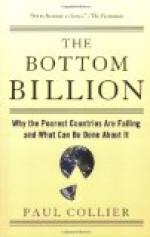From “The Gates of Paradise, and Other Poems.”
GOOD DEEDS
The influence of good deeds usually extends far beyond the limits we can see or trace; but as well not have the power to do them as not use it.
How far that little candle throws his
beams!
So shines a good deed in a naughty world.
Heaven doth with us as we with torches
do;
Not light them for themselves; for if
our virtues
Did not go forth of us, ’twere all
alike
As if we had them not.
William Shakespeare.
YOU MAY COUNT THAT DAY
A class of little settlement girls besought Mrs. George Herbert Palmer, one insufferable summer morning, to tell them how to be happy. “I’ll give you three rules,” she said, “and you must keep them every day for a week. First, commit something good to memory each day. Three or four words will do, just a pretty bit of poem, or a Bible verse. Do you understand?” A girl jumped up. “I know; you want us to learn something we’d be glad to remember if we went blind.” Mrs. Palmer was relieved; these children understood. She gave the three rules—memorize something good each day, see something beautiful each day, do something helpful each day. When the children reported at the end of the week, not a single day had any of them lost. But hard put to it to obey her? Indeed they had been. One girl, kept for twenty-four hours within squalid home-walls by a rain, had nevertheless seen two beautiful things—a sparrow taking a bath in the gutter, and a gleam of sunlight on a baby’s hair.
If you sit down at set of sun
And count the acts that
you have done,
And, counting, find
One self-denying deed, one word
That eased the heart of him who heard—
One glance most kind,
That fell like sunshine where it went—
Then you may count that day well spent.
But if, through all the livelong day,
You’ve cheered no heart, by yea
or nay—
If, through it all
You’ve nothing done that you can
trace
That brought the sunshine to one face—
No act most small
That helped some soul and nothing cost—
Then count that day as worse than lost.
George Eliot.
SADNESS AND MERRIMENT
(ADAPTED FROM “THE MERCHANT OF VENICE”)
In this passage Antonio states that he is overcome by a sadness he cannot account for. Salarino tells him that the mental attitude is everything; that mirth is as easy as gloom; that nature in her freakishness makes some men laugh at trifles until their eyes become mere slits, yet leaves others dour and unsmiling before jests that would convulse even the venerable Nestor. Gratiano maintains that Antonio is too absorbed in worldly affairs, and that he must not let his spirits grow sluggish or irritable.




